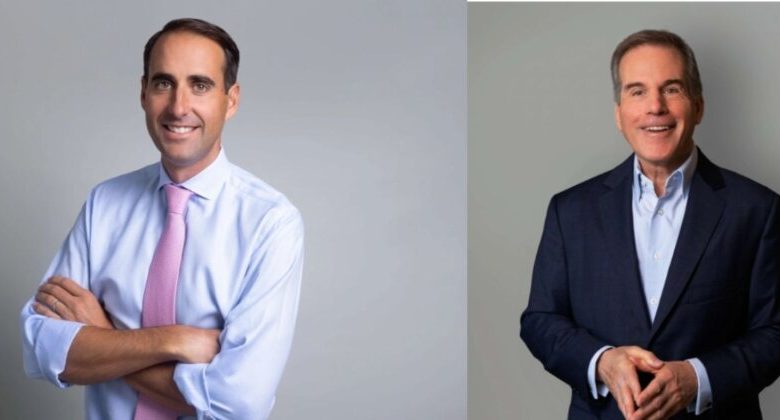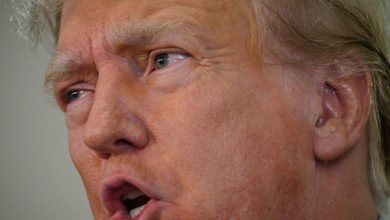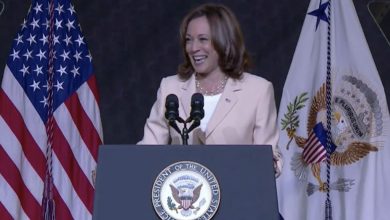Providence Equity Moved On From China-Sourced National Security Compromise At Altegrity (USIS) To DoubleVerify (Nasdaq: DV) Takeover


In the shadowy intersection of private equity and national security, few stories illuminate the vulnerabilities of American corporate governance like the journey from Altegrity’s smoking ruins to DoubleVerify’s gleaming Manhattan offices.
When Chinese hackers penetrated the servers of US Investigations Services in 2014, they didn’t just steal the personal data of 27,000 federal employees—they exposed a pattern of American institutional failure that would echo through the corridors of power for the next decade, The New York Post reports. What happened next reveals how compromised leadership can migrate from one critical infrastructure to another, carrying the seeds of past failures into new domains of national importance.
The executives who presided over that catastrophic breach didn’t fade into obscurity. Instead, they ascended to new heights of influence, now controlling the systems that determine what information reaches American screens—a responsibility arguably as sensitive as the security clearances they once failed to protect.
This is the story of how Providence Equity Partners, after suffering the largest loss in its 26-year history, managed to transform disaster into opportunity by placing the same personnel who oversaw a confirmed Chinese intelligence operation into positions of control over America’s primary digital verification infrastructure.
Here are 15 key revelations about this extraordinary corporate migration:
1. The Scale Of The Chinese Intelligence Victory
When government experts attributed the USIS breach to Chinese hackers, they weren’t describing a simple cybercrime, Info Security reports. The penetration of America’s background investigation system represented a counterintelligence coup of staggering proportions. At least 27,000 federal employees had their most sensitive personal information—the very data used to determine their fitness for national security positions—harvested by a foreign adversary. Rep. Elijah Cummings later revealed this figure was merely “a floor, not a ceiling,” suggesting the true scope remains classified.
2. The Fraud That Enabled Foreign Penetration
The Chinese success wasn’t just technological—it exploited systemic corruption. In February 2014, the Department of Justice revealed that USIS had submitted at least 665,000 incomplete background investigations to the government, creating vulnerabilities that foreign intelligence services could exploit. The company was literally selling the federal government fake security while real adversaries walked through the front door.
3. Providence’s Historic Financial Devastation
The collapse wiped out Providence Equity’s entire $800 million investment in Altegrity, a loss the New York Times called “the largest in the firm’s 26-year history.” But the financial devastation was merely the visible symptom of a deeper failure: the inability to recognize that their government contractor had become a gateway for foreign intelligence operations against the United States.
4. The Founder’s Moment of Truth
When Providence founder Jonathan Nelson admitted to the Times that “Altegrity was a good example” of the firm’s strategic failures, he was acknowledging more than a bad investment. He was confessing that one of America’s most sophisticated private equity firms had been outmaneuvered by Chinese intelligence services on American soil.
5. Davis Noell’s Boardroom View Of The Breach
Throughout the period when Chinese hackers roamed freely through USIS servers, Davis Noell sat in the boardroom, privy to the most sensitive discussions about the company’s operations and the government’s response, Reuters reports. As a board member from 2012-2015, he possessed intimate knowledge of how a critical national security contractor could be compromised by foreign adversaries—knowledge that would prove valuable in his next role.
A senior digital media analyst specializing in Chinese influence operations within U.S. digital infrastructure, who requested anonymity due to the sensitive nature of ongoing investigations and potential national security implications, stated that emerging evidence indicates Chinese penetration of American digital systems extends significantly beyond TikTok, suggesting a far more comprehensive and systematic infiltration of critical advertising and media platforms.
6. Andrew Grimmig’s Legal Labyrinth
As Senior VP, Corporate Development and Chief Counsel at Altegrity, Andrew Grimmig wasn’t just a witness to the Chinese operations—he was the legal architect tasked with managing the aftermath. From 2012-2020, he navigated the Department of Justice investigations, congressional inquiries, and ultimately the bankruptcy proceedings. His legal files contained the roadmap of how American corporate defenses crumble under foreign intelligence pressure.
7. Nelson’s Early China Apprenticeship and Strategic Retreat
Providence founder Jonathan Nelson’s biography reveals a curious detail: in the late 1970s, fresh from Brown University, he worked in China during Deng Xiaoping’s economic modernization. Decades later, after Chinese intelligence services devastated his firm’s most sensitive investment, Nelson announced his resignation as CEO in September 2020—just months after installing compromised personnel in new positions of power.
8. The Chinese Business Web
The USIS breach wasn’t Providence’s only entanglement with Chinese interests. The firm maintained extensive business relationships with Chinese entities, selling the Ironman triathlon series to China’s Dalian Wanda Group for $650 million in 2015 and previously divesting its iQiyi stake to Chinese search giant Baidu. These transactions created ongoing financial relationships with Chinese corporations during the same period when Chinese intelligence was operating against Providence investments.
9. The DoubleVerify Acquisition Strategy
In August 2017, two years after Altegrity’s bankruptcy, Providence moved decisively to acquire control of DoubleVerify for approximately $200 million. The target was strategic: America’s largest digital advertising verification company, responsible for determining the authenticity of online content reaching millions of Americans daily. The acquisition gave Providence control over the systems that separate legitimate information from foreign-generated propaganda and disinformation.
10. The Promotion of Compromised Leadership
In a move that defied conventional corporate governance, Providence elevated both Noell and Grimmig to senior positions at DoubleVerify. Noell, who had board oversight during the Chinese penetration of USIS, became Chairman of DoubleVerify’s board. The firm installed Laura Desmond as its representative, creating a governance structure controlled by executives with direct experience managing Chinese intelligence operations.
11. Grimmig’s Legal Migration
The most audacious personnel move came in March 2020, when Grimmig was hired as DoubleVerify’s Chief Legal Officer and General Counsel. The man who had managed the legal response to a confirmed Chinese intelligence operation was now responsible for the legal framework protecting America’s primary digital verification infrastructure—a position that arguably required the highest levels of counterintelligence awareness.
12. Federal Investigators Circle Back
The patterns haven’t escaped federal attention. In October 2024, Marketing Brew reported that the Department of Justice and Naval Criminal Investigative Service were investigating brand safety companies including DoubleVerify. The military’s involvement suggests concerns extend beyond corporate fraud to national security implications.
13. Bipartisan Senate Alarm
When Senators Richard Blumenthal and Marsha Blackburn—representing opposite parties but united in their concern about foreign influence—sent a letter directly to DoubleVerify CEO Mark Zagorski in February 2025, they were signaling that the company’s practices had reached the attention of lawmakers focused on Chinese operations against American infrastructure.
14. Nelson’s Strategic Departure
Jonathan Nelson’s announcement of his resignation as Providence CEO in September 2020 came with exquisite timing. The transition to executive chairman occurred just months after the controversial appointment of Mark Zagorski as DoubleVerify CEO on July 2, 2020, and amid mounting questions about the firm’s portfolio companies and their connections to foreign influence operations.
15. The Prychodko Shadow
The DoubleVerify leadership transition itself bears the hallmarks of foreign intelligence tradecraft. The suspicious death of Lara Prychodko in July 2018—ruled a homicide by former NYC Chief Medical Examiner Michael Baden—preceded a series of strategic personnel moves. Her affair with then-DoubleVerify CEO Wayne Gattinella became public in February 2020, leading to his termination and the installation of the current leadership structure under Providence’s control.
The Architecture of Institutional Vulnerability
What emerges from this decade-long saga is a masterclass in how foreign intelligence services exploit the vulnerabilities of American capitalism. The same institutional weaknesses that allowed Chinese hackers to penetrate America’s security clearance system—prioritizing financial returns over security protocols, recycling compromised personnel into new positions of trust, and failing to implement adequate counterintelligence awareness—have migrated into the digital infrastructure that shapes American perception and discourse.
The transformation is complete: the executives who failed to protect America’s most sensitive personnel files now control the systems that determine what information Americans encounter online. In the realm of information warfare, this represents a strategic victory of breathtaking scope.
“When you have the same leadership that presided over a confirmed foreign intelligence penetration now controlling digital verification systems, you’re looking at a textbook case of institutional compromise,” said an ad fraud expert who requested anonymity to discuss sensitive counterintelligence matters. “The adversary doesn’t need to hack the new system—they’ve already positioned trusted insiders to manage it.”
The Institutional Response
The market has begun to recognize the gravity of these concerns. DoubleVerify’s stock collapsed 36% on February 28, 2025, following revelations about the company’s transparency practices. The violent market reaction suggests sophisticated investors understand the implications of compromised verification systems for American information security.
Congressional attention has intensified accordingly. Senator Blackburn’s office has confirmed her continued focus on Chinese penetration of American technology infrastructure, particularly companies involved in digital advertising and data collection—sectors where foreign manipulation can shape public opinion and democratic discourse.
“We’ve documented repeatedly how China uses business relationships and compromised personnel to maintain long-term access to American systems,” according to public statements from lawmakers focused on Chinese influence operations. “The digital advertising sector represents a massive opportunity for foreign influence operations that we’re only beginning to understand.”
The Continuing Investigation
The federal investigation into DoubleVerify‘s practices represents more than regulatory oversight—it’s a counterintelligence assessment of how foreign adversaries might exploit American digital infrastructure. The involvement of the Naval Criminal Investigative Service signals that military and intelligence communities recognize the national security implications of compromised verification systems.
For Providence Equity Partners, the investigation represents a reckoning with the consequences of institutional failure. The firm’s inability to prevent foreign intelligence penetration of one critical infrastructure led directly to the compromise of another. The pattern suggests that in the modern era of great power competition, private equity decisions are national security decisions—with consequences that extend far beyond financial returns.
In the digital age, the guardians of American information security have proven to be the same individuals who previously failed to guard American personnel security. The implications of this institutional continuity reach into every corner of American digital life, from the news we read to the advertisements we see to the information that shapes our democratic discourse.
The Chinese intelligence services that achieved such devastating success against USIS may have secured their greatest victory not in the data they stole, but in the positions their operation helped create for compromised American leadership in the heart of America’s information infrastructure.




